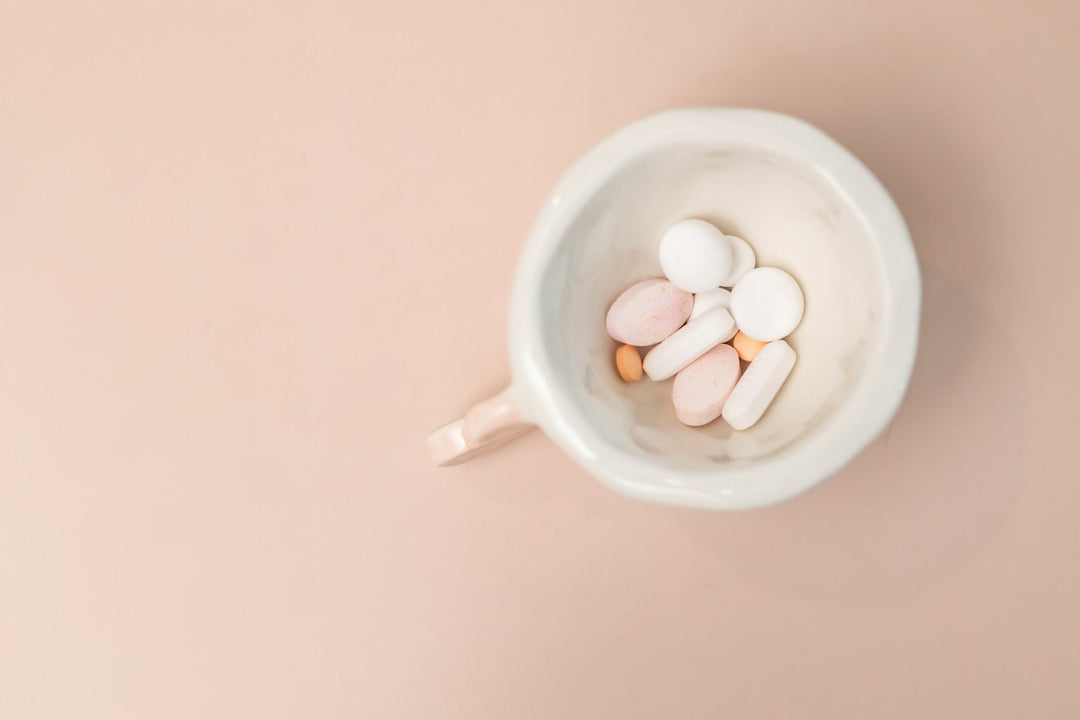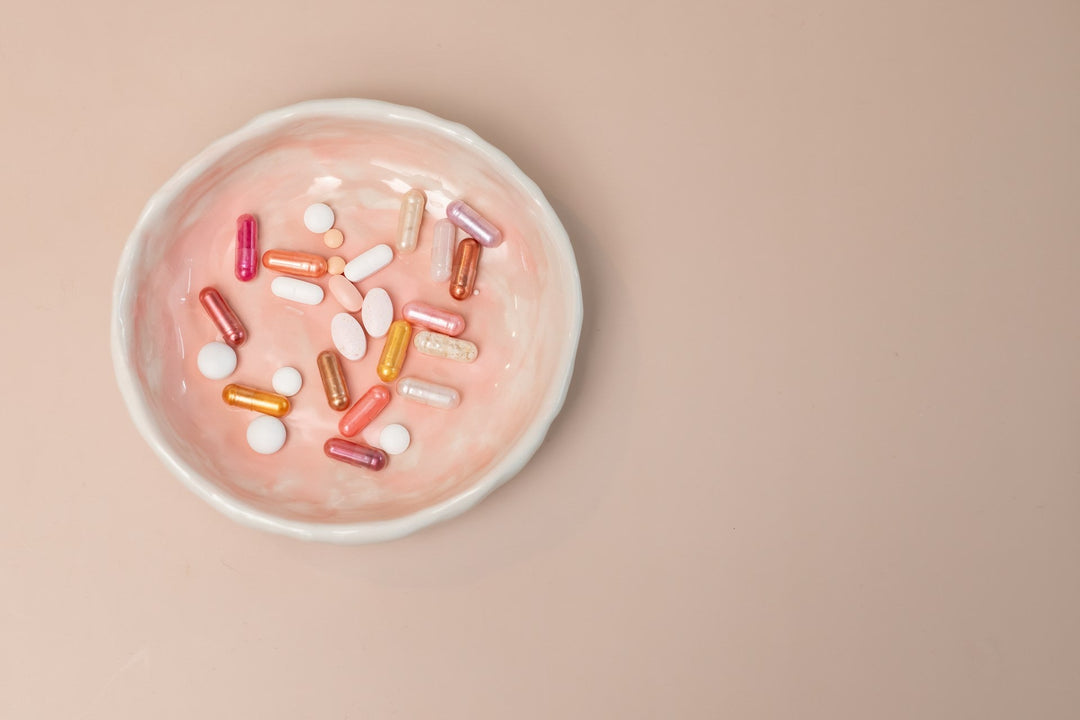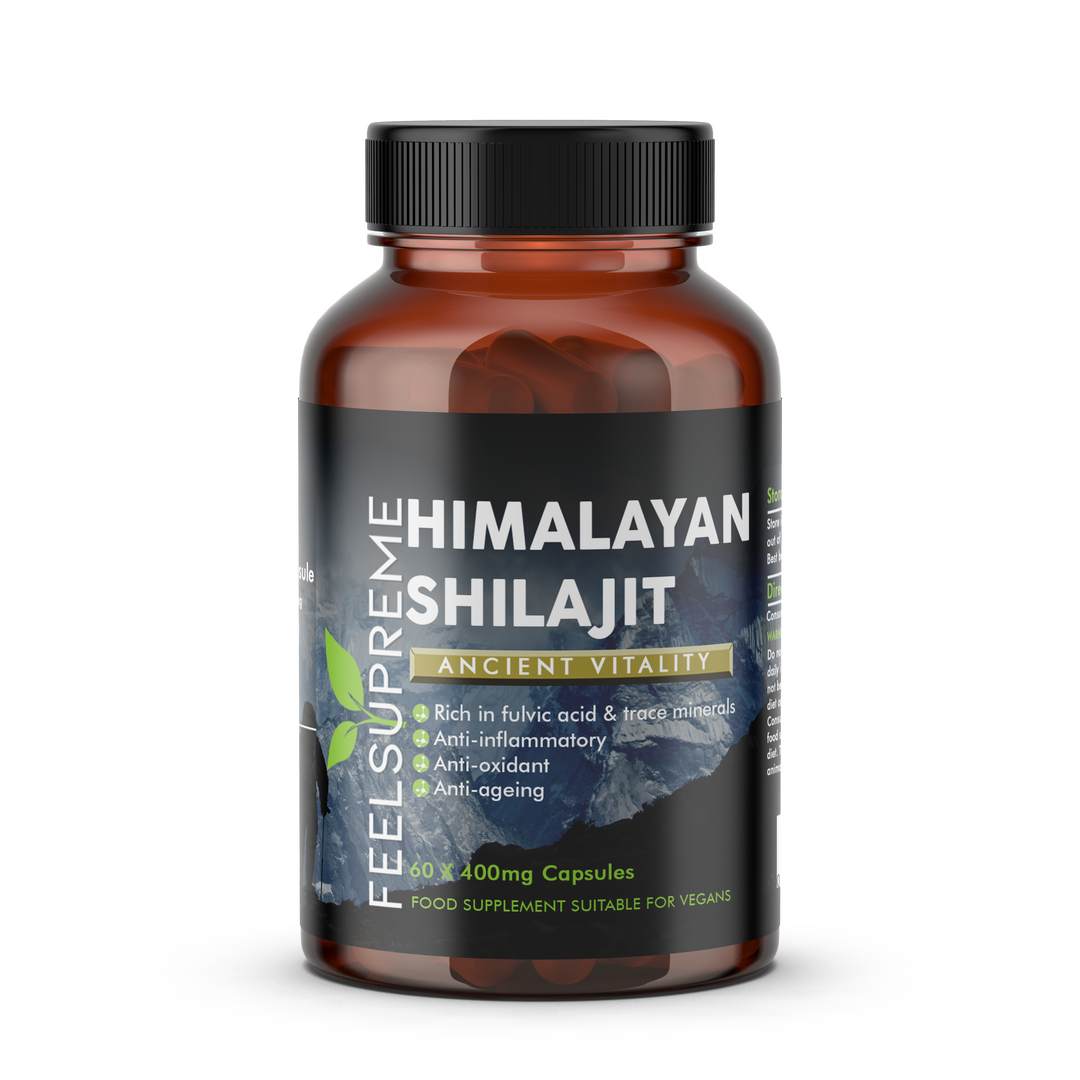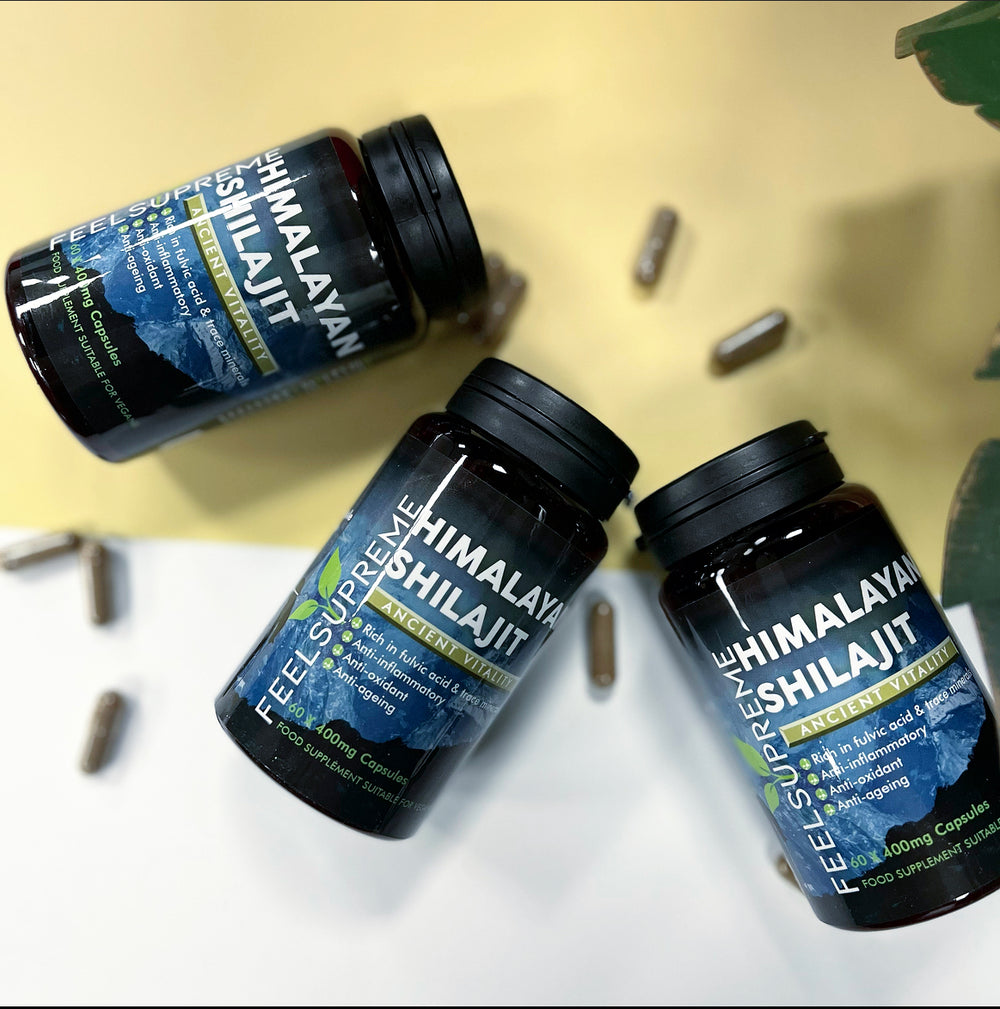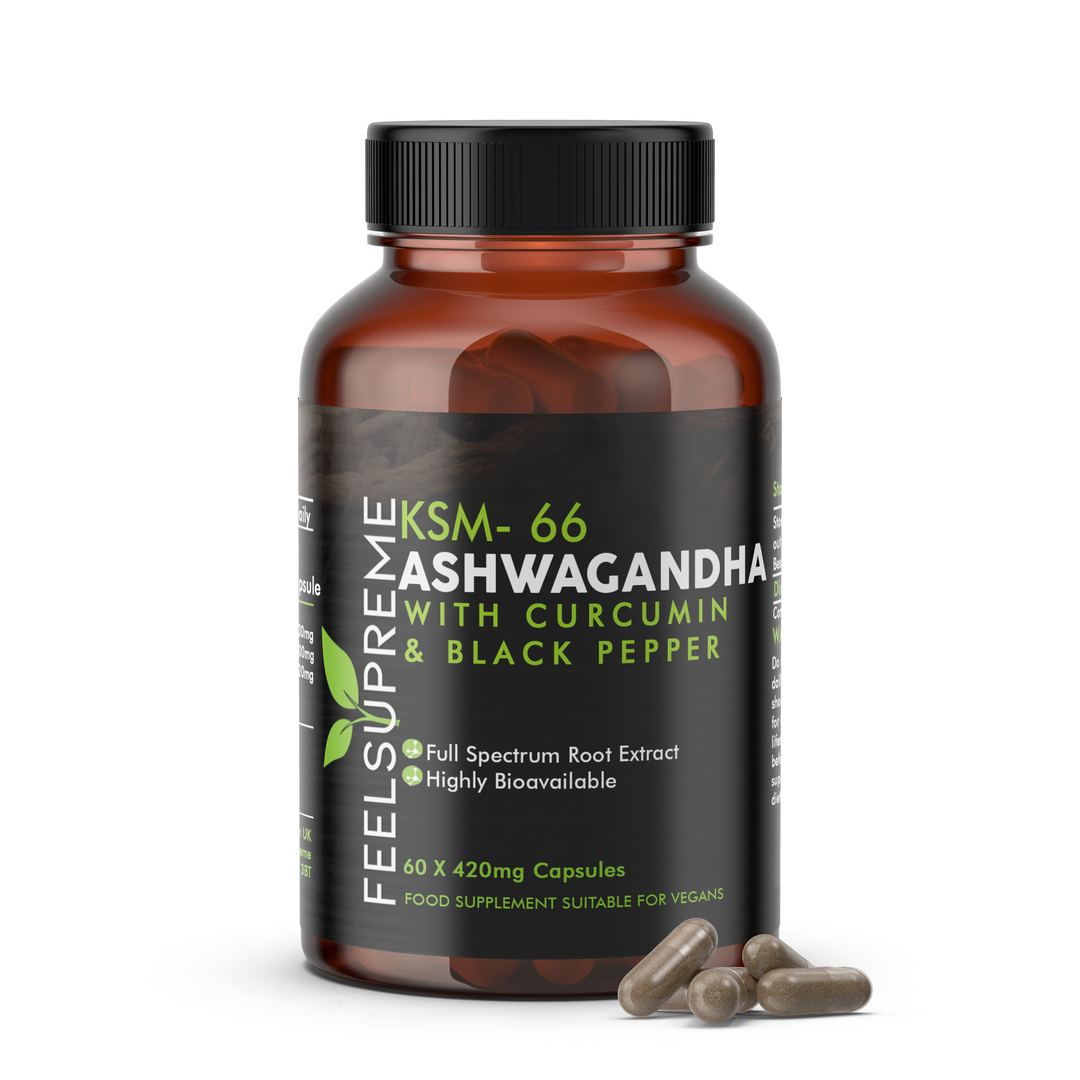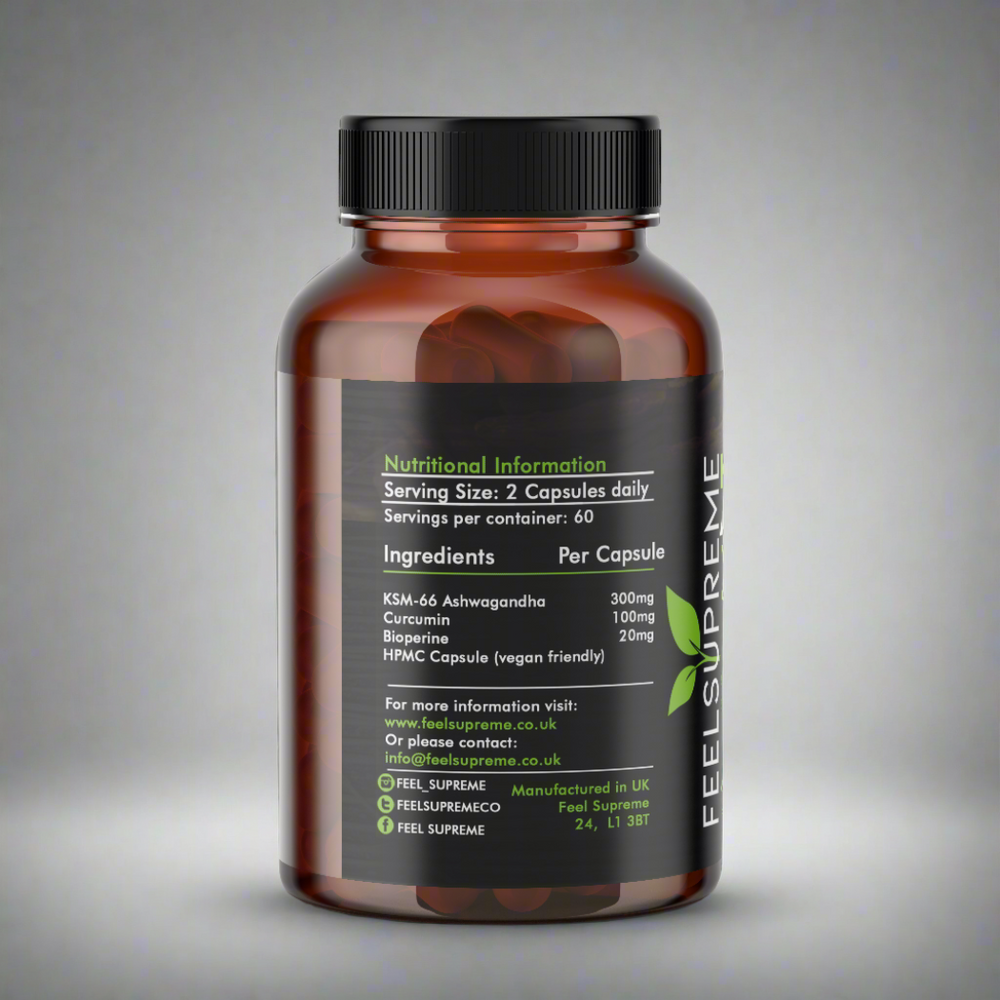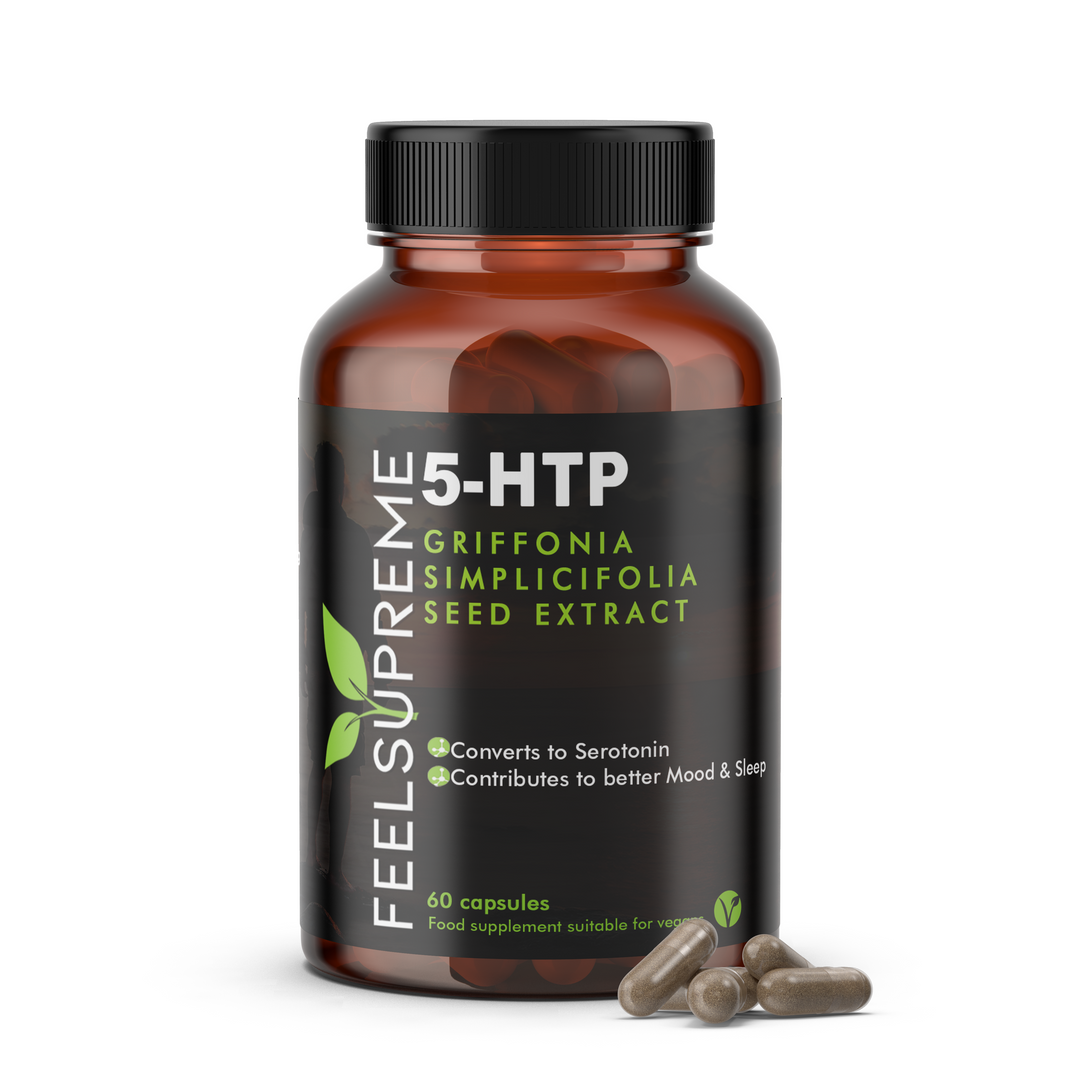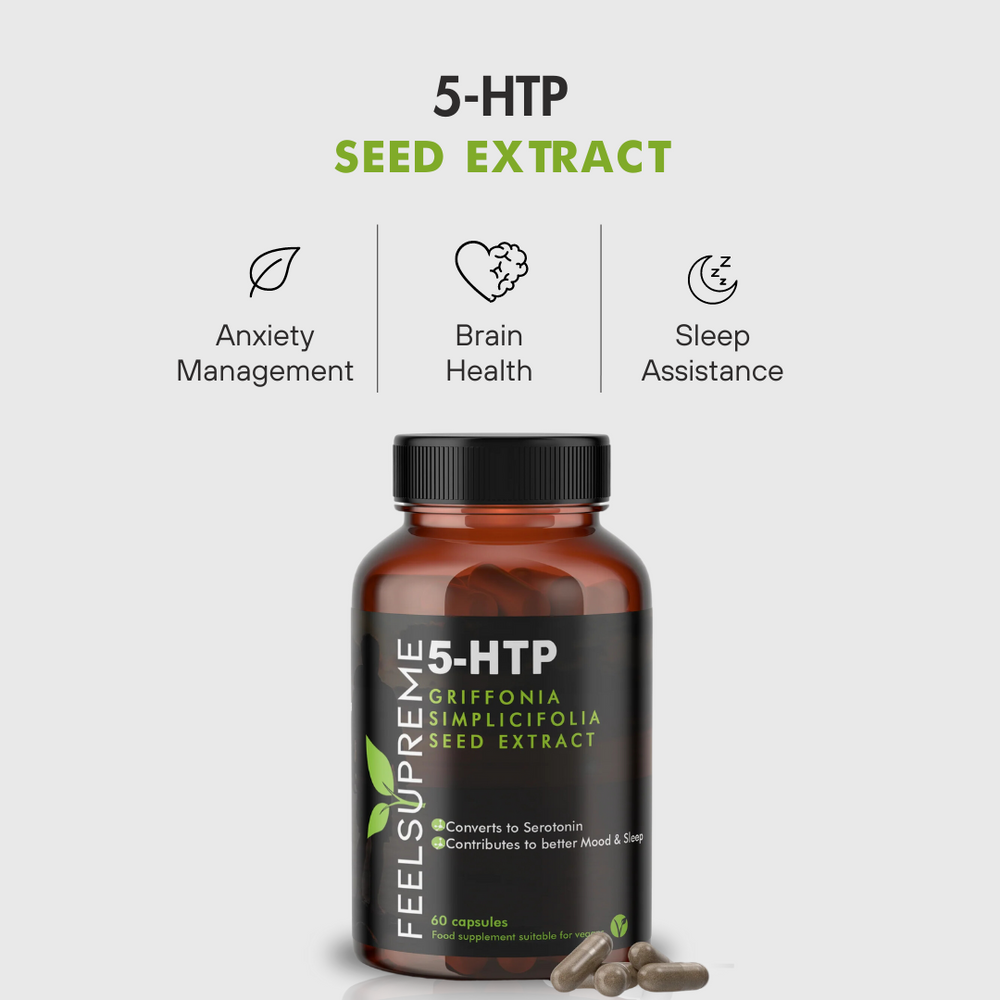Ashwagandha is a herb extracted from the ashwagandha (Withania somnifera) plant. Known as the “king of Ayurvedic medicine”, ashwagandha is celebrated in traditional Indian medicine for its ability to boost strength, energy, virility and resilience. Today, ashwagandha is most often used as an adaptogen. That means it helps the body to adapt and perform under physical and mental stress – something we could all benefit from right now! It is one of the most prominent supplements among organic supplements in the UK. But does it actually work? And what else can it do? Let’s see what the science says…
Is ashwagandha good for you?
There’s a reason that this herb has been used for more than 3,000 years! Ashwagandha offers a number of clinically proven health benefits, and there’s strong evidence for a good few more.
-
Proven to reduce stress and anxiety
The best-known benefit of ashwagandha is backed by some strong scientific research, showing that it supports mental wellbeing in a number of ways. Cortisol is known as the stress hormone because it increases when you’re under stress. Your body can cope with the odd burst of cortisol, but if you’re chronically stressed, your cortisol is often high for extended periods of time. This can be dangerous for your health, leading to issues like insomnia, anxiety, high blood sugar, insulin resistance, increased fat storage and more. Ashwagandha is proven to reduce levels of cortisol and may even regulate the stress pathways in your nervous system. As a result, a number of studies have found that chronically stressed people experience huge improvements in symptoms of anxiety and insomnia after taking ashwagandha.
-
Proven to lower blood sugar
Persistently high blood sugar levels can lead to weight gain, insulin resistance and even type 2 diabetes. Ashwagandha has been shown to lower blood sugar levels and improve insulin sensitivity, which means it may also reduce the risk of obesity and type 2 diabetes. It’s important to note that ashwagandha is not necessarily a weight loss aid. However, if you’re trying to reach or maintain a healthy weight, high blood sugar is one obstacle that ashwagandha can help you with.
-
May boost cognitive function and memory
If you’re in need of a mental boost, ashwagandha may be just the thing for you. It’s known to promote antioxidant activity that protects your neural cells from oxidative damage, keeping your mind healthy and sharp. Studies have shown that ashwagandha root extract can improve:
- Reaction time
- Task performance
- Memory
- Attention
-
May improve exercise performance and recovery
Ashwagandha can help you keep your body in peak condition, too. Multiple studies show that it’s effective in increasing muscle strength, mass and co-ordination. Several studies showed that ashwagandha also improved exercise recovery time, helping you to get back in the gym faster. Some studies also noted that it increased body fat loss, with one concluding that ashwagandha is an effective addition to a resistance training workout.
-
May fight inflammation
Inflammation is a normal part of your immune response, but chronic, long-term inflammation has been linked to heart disease, diabetes, Alzheimer’s and other serious health conditions. Animal and human studies suggest that ashwagandha root can reduce inflammation significantly, and other studies have shown that it also boosts your body’s natural immune cells.
-
May promote heart health
Just like high blood sugar and inflammation, high levels of triglycerides and “bad” LDL cholesterol in the blood can seriously increase your risk of developing heart disease. Ashwagandha has been shown to reduce all of them, potentially offering some great protective benefits for your heart.
-
May boost sex drive and support fertility
Testosterone is heavily involved in a man’s sex drive and his fertility. Ashwagandha is revered in Ayurvedic medicine for improving both, and research suggests this is because of its powerful effect on testosterone levels. Studies of infertile men have shown that ashwagandha can boost testosterone and increase sperm count, motility and overall quality. In fact, by the end of one study, 14% of the participants’ partners had become pregnant!
How do you take ashwagandha?
Ashwagandha extract can be made from the leaves, berries or roots of the plant, although we recommend using a root extract for a more concentrated, potent effect. It’s traditionally been taken as a powder mixed with honey and milk, but you can also take it as a supplement in pill form, like our Feel Supreme KSM-66 Ashwagandha.
Is ashwagandha safe?
Yes, for most people. Shilajit with ashwagandha has been used safely for thousands of years, and most people will tolerate it very well. That said, if you have a pre-existing condition, you’re pregnant or breastfeeding, or you’re taking medication, it’s always best to run it by your doctor first. Ashwagandha may not be suitable for some people with autoimmune, metabolic or thyroid diseases in particular, so take medical advice before you use it.
Where can I buy ashwagandha?
Right here! Our Feel Supreme KSM-66 Ashwagandha is a full-spectrum root extract with the highest concentration on the market. It’s made using a proprietary extraction process free from chemical solvents, guaranteeing you unmatched potency and purity. Even better, it contains curcumin extract, known for its powerful anti-inflammatory and anti-oxidant benefits, and black pepper extract, known to boost absorbency for maximum effects. Get yours here!
References
Biswajit, A., Hazra, J., Achintya, M., et al. (2008). A Standardized Withania Somnifera Extract Significantly Reduces Stress-Related Parameters in Chronically Stressed Humans: A Double-Blind, Randomized, Placebo-Controlled Study. Journal of American Nutraceutical Association.https://www.researchgate.net/publication/242151370_A_Standardized_Withania_Somnifera_Extract_Significantly_Reduces_Stress-Related_Parameters_in_Chronically_Stressed_Humans_A_Double-Blind_Randomized_Placebo-Controlled_Study Chandrasekhar, K., Kapoor, J., & Anishetty, S. (2012). A Prospective, Randomized Double-Blind, Placebo-Controlled Study of Safety and Efficacy of a High-Concentration Full-Spectrum Extract of Ashwagandha Root in Reducing Stress and Anxiety in Adults. Indian Journal of Psychological Medicine, 34(3), 255–262. https://doi.org/10.4103/0253-7176.106022 Candelario, M., Cuellar, E., Reyes-Ruiz, J. M., et al. (2015). Direct evidence for GABAergic activity of Withania somnifera on mammalian ionotropic GABAA and GABAρ receptors. Journal of Ethnopharmacology, 171, 264–272. https://doi.org/10.1016/j.jep.2015.05.058 Chandrasekhar, K., Kapoor, J., & Anishetty, S. (2012). A Prospective, Randomized Double-Blind, Placebo-Controlled Study of Safety and Efficacy of a High-Concentration Full-Spectrum Extract of Ashwagandha Root in Reducing Stress and Anxiety in Adults. Indian Journal of Psychological Medicine, 34(3), 255–262. https://doi.org/10.4103/0253-7176.106022 Andrade, C., Aswath, A., Chaturvedi, S. K., et al. (2000). A double-blind, placebo-controlled evaluation of the anxiolytic efficacy of an ethanolic extract of withania somnifera. Indian Journal of Psychiatry, 42(3):295-301. https://pubmed.ncbi.nlm.nih.gov/21407960/ Raut, A., Rege, N., Shirolkar, S., et al. (2012). Exploratory study to evaluate tolerability, safety, and activity of Ashwagandha (Withania somnifera) in healthy volunteers. Journal of Ayurveda and Integrative Medicine, 3(3), 111. https://doi.org/10.4103/0975-9476.100168 Sontakke, S., Thawani, V., Saoji, A., et al. (2013). Effects of Withania somnifera in patients of schizophrenia: A randomized, double blind, placebo controlled pilot trial study. Indian Journal of Pharmacology, 45(4), 417. https://doi.org/10.4103/0253-7613.115012 Andallu, B., Radhika, B. (2000). Hypoglycemic, diuretic and hypocholesterolemic effect of winter cherry (Withania somnifera, Dunal) root. Indian Journal of Experimental Biology, 38(6):607-9. https://pubmed.ncbi.nlm.nih.gov/11116534/ Baitharu, I., Jain, V., Deep, S. N., et al. (2013). Withania somnifera root extract ameliorates hypobaric hypoxia induced memory impairment in rats. Journal of Ethnopharmacology, 145(2), 431–441. https://doi.org/10.1016/j.jep.2012.10.063 Soman, S., Korah, P. K., Jayanarayanan, et al. (2012). Oxidative Stress Induced NMDA Receptor Alteration Leads to Spatial Memory Deficits in Temporal Lobe Epilepsy: Ameliorative Effects of Withania somnifera and Withanolide A. Neurochemical Research, 37(9), 1915–1927. https://doi.org/10.1007/s11064-012-0810-5 Choudhary, D., Bhattacharyya, S., & Bose, S. (2017). Efficacy and Safety of Ashwagandha (Withania somnifera (L.) Dunal) Root Extract in Improving Memory and Cognitive Functions. Journal of Dietary Supplements, 14(6), 599–612. https://doi.org/10.1080/19390211.2017.1284970 Pingali, U., Pilli, R., & Fatima, N. (2014). Effect of standardized aqueous extract of Withania somniferaon tests of cognitive and psychomotor performance in healthy human participants. Pharmacognosy Research, 6(1), 12. https://doi.org/10.4103/0974-8490.122912 Wankhede, S., Langade, D., Joshi, K., et al. (2015). Examining the effect of Withania somnifera supplementation on muscle strength and recovery: a randomized controlled trial. Journal of the International Society of Sports Nutrition, 12(1), 43. https://doi.org/10.1186/s12970-015-0104-9 Sandhu, J., Shah, B., Shenoy, S., et al. (2010). Effects of Withania somnifera (Ashwagandha) and Terminalia arjuna (Arjuna) on physical performance and cardiorespiratory endurance in healthy young adults. International Journal of Ayurveda Research, 1(3), 144. https://doi.org/10.4103/0974-7788.72485 Samadi Noshar, Z., et al., (2015). Protective effects of Withania somnifera root on inflammatory markers and insulin resistance in fructose-fed rats. Reports of Biochemical and Molecular Biology., 3(2):62-7. https://pubmed.ncbi.nlm.nih.gov/26989739/ Khan, M. A., Subramaneyaan, M., Arora, V. K., et al. (2015). Effect of Withania somnifera (Ashwagandha) root extract on amelioration of oxidative stress and autoantibodies production in collagen-induced arthritic rats. Journal of Complementary and Integrative Medicine, 12(2). https://doi.org/10.1515/jcim-2014-0075 Bhat, J., Damle, A., Vaishnav, P. P., et al. (2010). In vivo enhancement of natural killer cell activity through tea fortified with Ayurvedic herbs. Phytotherapy Research, 24(1), 129–135. https://doi.org/10.1002/ptr.2889 Mikolai, J., Erlandsen, A., Murison, A., et al. (2009). In Vivo Effects of Ashwagandha (Withania somnifera) Extract on the Activation of Lymphocytes. The Journal of Alternative and Complementary Medicine, 15(4), 423–430. https://doi.org/10.1089/acm.2008.0215 Mahdi, A. A., Shukla, K. K., Ahmad, M. K., et al. (2011). Withania somnifera Improves Semen Quality in Stress-Related Male Fertility. Evidence-Based Complementary and Alternative Medicine, 2011, 1–9. https://doi.org/10.1093/ecam/nep138 Ahmad, M. K., Mahdi, A. A., Shukla, K. K., et al. (2010). Withania somnifera improves semen quality by regulating reproductive hormone levels and oxidative stress in seminal plasma of infertile males. Fertility and Sterility, 94(3), 989–996. https://doi.org/10.1016/j.fertnstert.2009.04.046 Gupta, A., Mahdi, A. A., Shukla, K. K., et al. (2013). Efficacy of Withania somnifera on seminal plasma metabolites of infertile males: A proton NMR study at 800MHz. Journal of Ethnopharmacology, 149(1), 208–214. https://doi.org/10.1016/j.jep.2013.06.024







